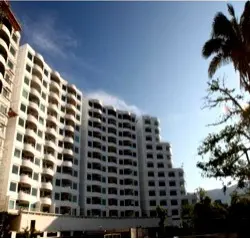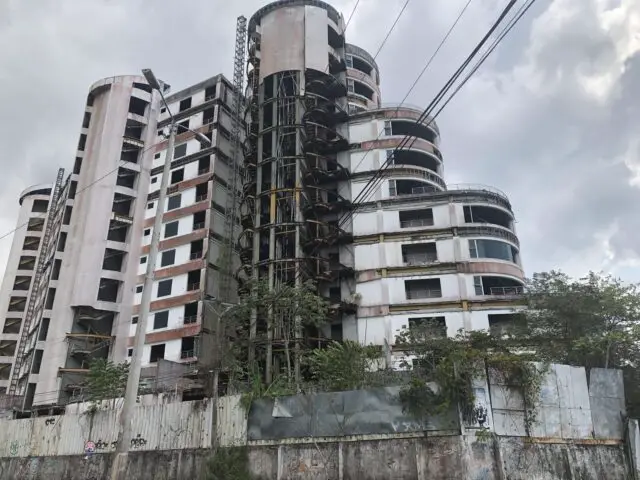In 2007, it was partially financed by the Central American Bank for Economic Integration (CABEI), as is well known Costa Rica is a part owner, as well as an investor in what is known as the Sonesta Jacó Resort and Beach Club.
But overnight, what was to be one of the most important private ventures in the country, a luxurious hotel with a state-of-the-art structure built by first-class professionals and companies, was left in oblivion.
The hotel complex was in charge of the firm Riverside Developers, managed by Joshua Ten Brink.
It is worth mentioning that after the financing of the well-known Costa Rican jewel located in Jacó, canton of Garabito was announced, a year later (in 2008), according to verifications of the banks themselves, the project was almost finished, exactly 84%, the apartments were 75% sold, presumably to foreign investors, which of course, generated expectations for both the real estate and tourism areas.

At the time of the first stage of the Sonesta development, it was estimated that it would be composed of more than 200 condominiums that would be ready in January 2009, with an estimated construction cost of US$70 million.
Did the banks prevent the company from taking off?
In 2009, CABEI, for alleged violation of the loan agreement signed between the parties, accelerated the repayment of the debt without giving the company a chance to take off.
The situation reached the Costa Rican courts.
The unusual measure left investors, buyers, and the community in general astonished and disappointed.
Today, the Central American Bank’s decision still maintains speculation and theories about what happened.
It is also known that they begged the CABEI manager to reconsider the decision to stop the work, arguing that if the contract was not changed, the project would be a success and the debt would be repaid.

It is also known that they begged the CABEI manager to reconsider the decision to stop the work, arguing that if the contract was not changed, the project would be a success and the debt would be repaid.
They even claim that they were up to date with their obligations and that the prestigious Sonesta hotel chain had already begun to manage the hotel.
But beyond everything, the valuable hotel deteriorated so much that it is named today by Humberto Fallas, a Tico lawyer, as an “esperpento”. What happened, undoubtedly left great damage for the country, in the sense of credibility before the investment and construction of such great works for example the Sonesta, of course The prestige was at stake since national and foreign investors, buyers, contractors, and suppliers, as well as the community of Jacó were involved.
Fallas emphasized that what happened in Jacó is a bad example that should not be repeated.

Attempts to conciliate
A representation of the work has constantly sought conciliation because they continue to believe in Jacó’s potential, but the banks, for reasons difficult to understand, refuse to negotiate. In the opinion of the group of people interested in conciliating, “they assume that in their mind -they won-, even though they pay more than $80,000 a month of Costa Ricans’ money to take care of the “prize” that remains in abandonment.
This is a topic that has been mentioned in social networks, in which Costa Rican citizens have commented that it would be great to find the mechanisms to award the CCSS and build a mega-hospital for the entire Pacific area and that in this way the infrastructure can be used for the welfare of the people, among many others.
What a pity that a project with a successful visualization remains in the current conditions and is still generating uncomfortable moments within the area, even for the country. Economic experts mentioned it as a great base and economic engine for the development of Jaco and an iconic architectural structure that demonstrates growth beyond the incredible biodiversity that Costa Rica has.

